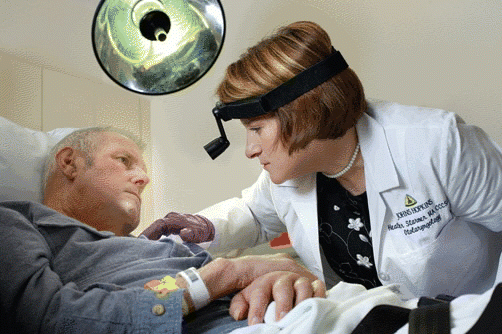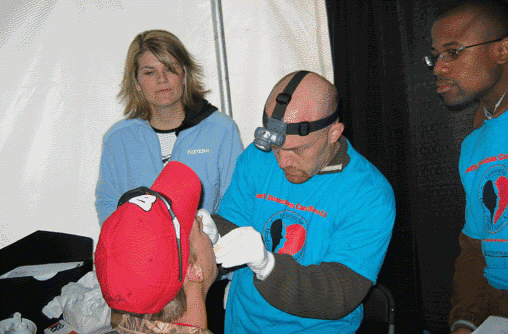PHOENIX-Just how useful are PET or PET-CT in identifying residual occult nodal disease in patients with head and neck cancer? Two presentations at the 2009 Combined Otolaryngology Spring Meeting addressed this topic.


PHOENIX-Just how useful are PET or PET-CT in identifying residual occult nodal disease in patients with head and neck cancer? Two presentations at the 2009 Combined Otolaryngology Spring Meeting addressed this topic.

PHOENIX-Performing salvage surgery after chemoradiation or radiation treatment for laryngeal cancer patients, rather than just performing primary surgery right away, appears to lead to more complications with patients’ tracheoesophageal voice prostheses, according to a retrospective study reported by researchers here.

Oral, head and neck cancer screening is critical to early detection-but otolaryngologists often find that they aren’t reaching the populations at highest risk for the disease. Consequently, many physicians are taking the initiative to develop novel and creative outreach programs to target people who are likely to regularly use tobacco and alcohol, as well as individuals who do not have ready access to health care.

ORLANDO-Concurrent chemoradiotherapy (CRT) is considered standard treatment for unresectable advanced head and neck cancer. A new study presented at the 2009 meeting of the American Society of Clinical Oncology (ASCO) suggests that induction chemotherapy (IC) delivered before CRT significantly improved time to treatment failure (TTF) compared with standard upfront CRT alone in this setting.

Otolaryngologists-head and neck surgeons have suggested that performing tonsillectomy among patients who present with neck metastases from an occult primary tumor can identify a high percentage of primary tumors-an even better success rate in locating the malignancies than can be obtained with deep tonsil biopsy.